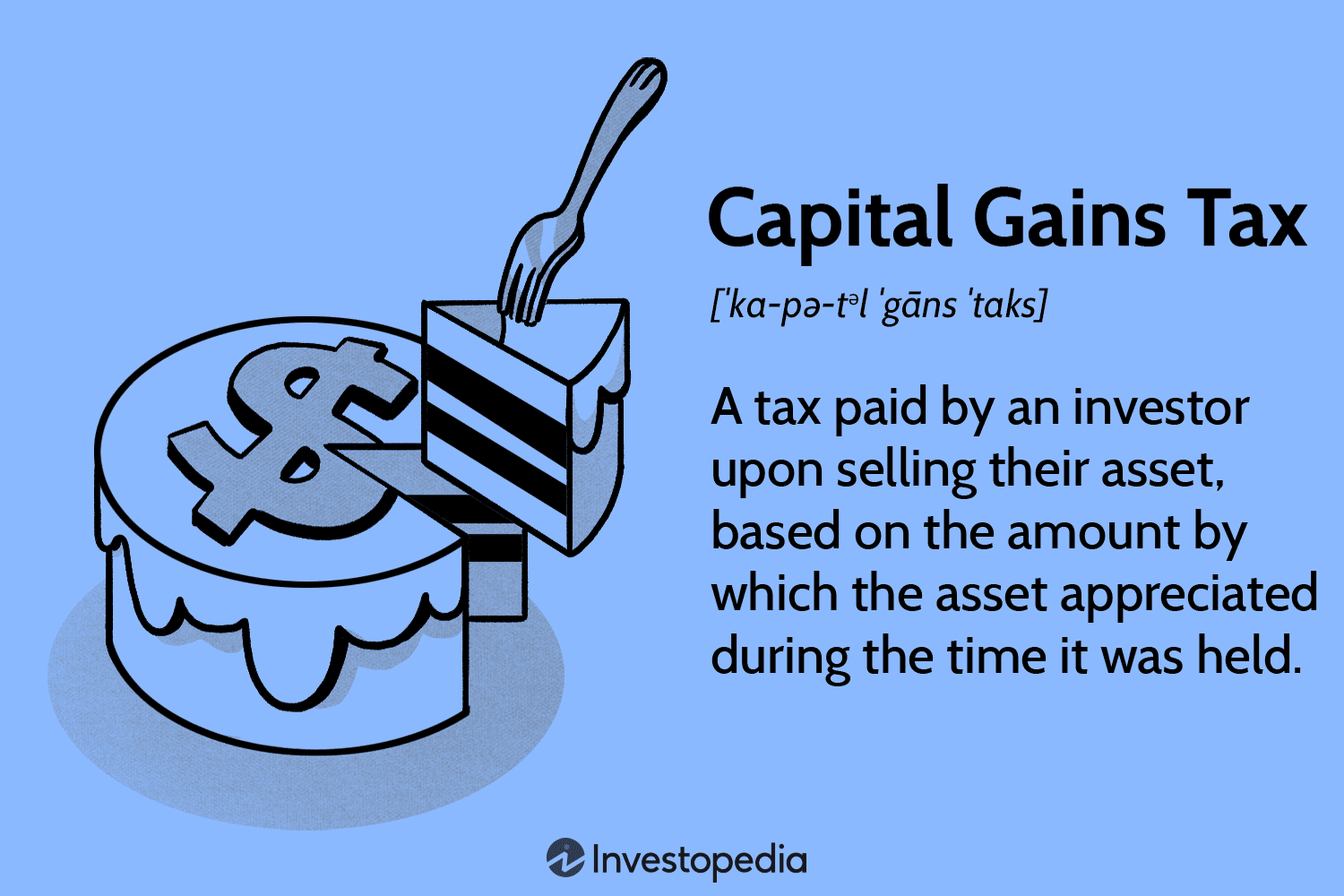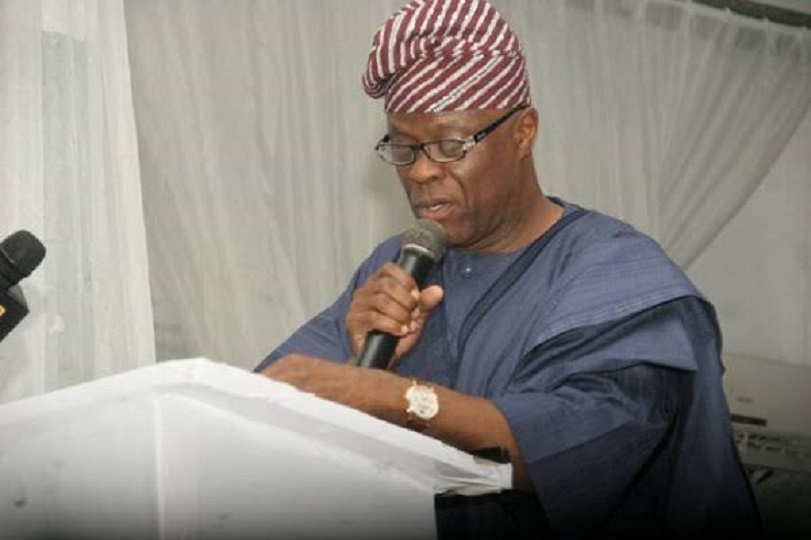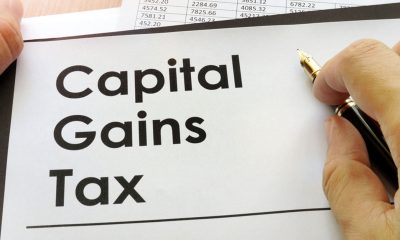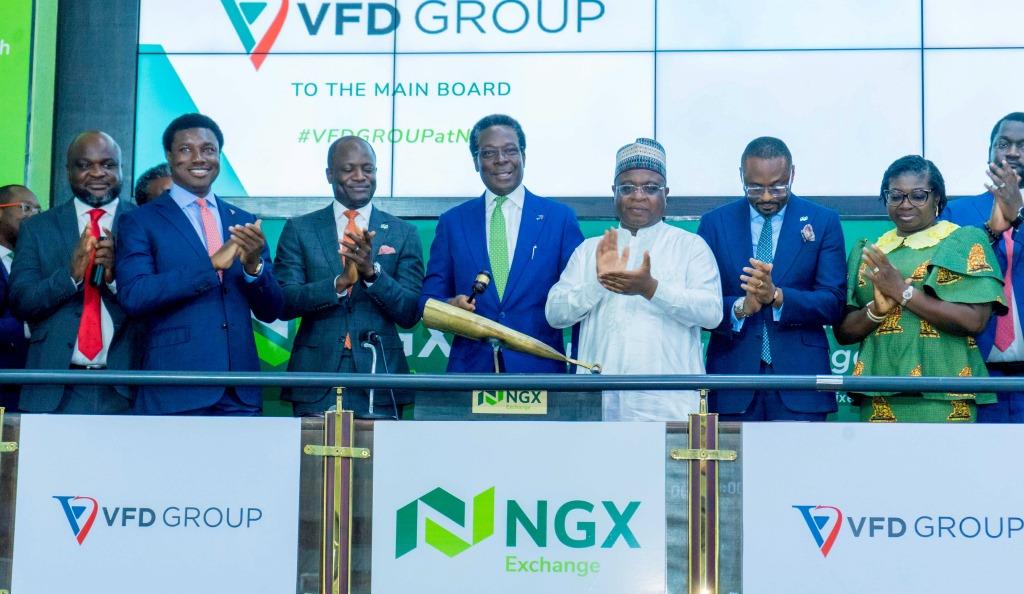Economy
What is Capital Gains Taxation and How to Optimize it?

If you have ever traded any securities on the capital markets, chances are that you have paid capital gains taxes before, provided the country of your residence levies such taxes.
Capital gains taxes are levied on the profit generated by buying and selling a particular asset or financial security.
For example, if an investor buys 10 Apple stock for $200 per share and then sells the entire investment for $220 per share, the taxable profit is $200.
Taxes on FX gains are levied at different rates, depending on the length of the holding period of the investment. Long-term capital gains taxes are levied after at least 12 months of holding an asset, while anything less is treated as a short-term capital gain.
In order to better understand how capital gains taxes work and how to optimize your strategies against them, we can look at several examples below.
Example 1 – Long-term capital gains tax
Long-term capital gains taxes in the United States are levied at a rate of 0%, 15%, or 20%, based on income levels and filing status.
Typically, long-term capital gains taxes are levied on asset sales after at least 12 months from purchase. Therefore, if an investor sells an asset 2 years after purchase, the profit will be treated as a long-term capital gain and taxed accordingly.
In other countries, long-term capital gains may have a flat tax rate. For instance, France upholds a long-term capital gains tax of 30%, regardless of the type of instrument.
Example 2 – Short-term capital gains tax
If we look at an example of short-term capital gains taxation, we can see that short-term gains are much easier in terms of tax handling, particularly in the United States, where short-term capital gains are taxed at the ordinary federal and state income tax rates.
For example, if an investor buys $100,000 worth of shares and sells them at a 10% profit in 6 months, the $10,000 difference would be taxable at a rate of 22%, assuming the investor has no other sources of income.
In general, the federal taxes levied on short-term capital gains range from 10% to 37%, with an additional state tax based on place of residence.
Are capital gains taxes universal?
Similarly to any other type of tax levied by governments, capital gains taxes can differ considerably based on the jurisdiction where you reside.
For example, short-term capital gains taxes in the United States are charged at the ordinary income levels, which means that the taxes on short-term capital gains are levied at rates between 10% on the lower end and 37% on the higher end.
On the other hand, a number of countries do not charge capital gains taxes at all. Some such jurisdictions include: Switzerland, Singapore, the UAE, Monaco, Malaysia, Belgium, New Zealand, and more.
In most cases capital gains taxes are levied at income tax levels, while in some cases, they are entirely separate and taxed at a separate, but smaller, rate.
Optimizing your capital gains tax
A key difference between capital gains and other taxes is that capital gains taxes can be optimized, leading to a smaller tax burden overall.
There are several ways of optimizing your capital gains taxes, especially if you reside in the United States and have a SSN, as a number of tax-advantaged investment accounts are available to US residents and citizens, such as: The 401(k), Roth IRAs and Regular IRAs.
In the United Kingdom, you can choose an Individual Savings Account, or ISA. These accounts allow you to close your investments tax-deferred, meaning you do not have to pay capital gains taxes when using them.
Another strategy you can use is tax-loss harvesting, which is done by selling losing investments to offset taxable capital gains. If losses exceed gains, many jurisdictions allow to carry forward excess losses to future years. However, it is also worth noting that tax-loss harvesting can only be done up to $3,000 in the United States.
Conclusion
Capital gains taxes are levied on the profit generated by buying and selling financial securities and other assets.
The rates of capital gains tax differ considerably between jurisdictions and some countries do not levy capital gains taxes at all.
In general, there are two types of capital gains taxes – Short-term and longterm. In most cases, short-term capital gains are taxed as ordinary income, while long-term capital gains taxes are treated as a distinct subcategory of income tax.
For those seeking to optimize their capital gains taxation to avoid overpaying, they can use strategies, such as tax-loss harvesting up to a certain point, or invest and trade using a IRA or other tax-deferred investment/savings account.
Economy
Customs to Fast-Track Cargo Clearance at Lekki Deep Sea Port

By Adedapo Adesanya
The Comptroller-General of the Nigeria Customs Service (NCS), Mr Adewale Adeniyi, has unveiled a Green Channel initiative at the Lekki Deep Sea Port as part of efforts to simplify cargo clearance, reduce delays, and improve operational efficiency for port users.
The launch marks a major step in customs’ drive to enhance trade facilitation through technology and stakeholder collaboration.
Speaking at the event in Lagos, Mr Adeniyi said the initiative was introduced by the Lekki Deep Sea Port and approved by NCS management to address persistent challenges in container stacking and examination at major ports, which often slow cargo processing.
“This particular intervention helps to move containers right from the vessel into a dedicated place where customers can have access. And between the time the container moves from the vessel to this particular place, it is tracked,” he said.
The customs boss explained that the Green Channel is designed to ensure seamless cargo movement through a dedicated corridor with minimal bureaucratic obstacles, enabling faster turnaround time for importers and other stakeholders.
He described the initiative as a product of mutual trust between the agency and its stakeholders, stressing that compliance and cooperation are essential to its success.
“What we have done today is a product of the kind of trust that we have invested in our stakeholders and the confidence that we also have in them, that they would do this in the spirit of compliance and trade facilitation,” he said.
Mr Adeniyi added that beyond easing port operations, the Green Channel supports Nigeria’s broader economic objective of building a more competitive trade environment, noting that the initiative is expected to reduce the cost and time required to do business, ultimately boosting revenue generation for the service.
Economy
Jim Ovia Denies Knowledge of Wealth Bridge Investment Scheme

By Aduragbemi Omiyale
The chairman of Zenith Bank Plc, Mr Jim Ovia, has dissociated himself from a video making the rounds, purporting that he has endorsed an investment scheme put together by Wealth Bridge.
In a statement, it was emphasised that the video of the businessman is fake, as he has no link with Wealth Bridge, which urged Nigerians to invest in the business.
The management of Zenith Bank has, therefore, advised the public to disregard videos circulated through the Greece Island Facebook handle.
The promoters of the investment scheme promised prospective customers up to N2 million in weekly returns on a contribution of N380,000.
But Zenith Bank stressed that any member of the public who conducts business with the entity does so at his or her risk, as claims in the video that the investment has the backing of the Central Bank of Nigeria (CBN) are untrue.
“The video redirects unsuspecting members of the public to an alleged Arise News webpage with the details of this scheme and an embedded registration portal for signups. This claim is also entirely false and has no connection whatsoever to the bank or its group chairman.
“For the avoidance of doubt, all the videos and promotional materials referenced above are FAKE and have nothing to do with Zenith Bank Plc or Dr Jim Ovia. The Group Chairman of Zenith Bank and the bank have no knowledge of the said investment scheme and have not entered into any partnership with the companies, individuals, or platforms behind these schemes.
“The general public is hereby advised to disregard these fraudulent communications. Anyone who engages with the Greece Island handle, Wealth Bridge, delicious sitee, AfriQuantumX, Stock market analyst 1, or any other entity on the basis of these fake videos and images published by impostors does so strictly at his or her own risk,” parts of the statement read.
Economy
FG to Review Six-Month Shea Export Ban

By Adedapo Adesanya
The federal government has assured stakeholders in the shea value chain that it would review the export ban on shea nuts, citing concerns over its impact on local producers, exporters and foreign exchange (FX) earnings.
On August 26, 2025, President Bola Tinubu directed a six-month temporary ban on the export of raw shea nuts.
According to NAN, the Minister of Industry, Trade and Investment, Mrs Jumoke Oduwole, at a stakeholders’ validation session on the ban on raw shea nuts exports in Nigeria on Thursday, said the ministry would brief the president after consultations across the value chain.
The Minister, at the gathering in Abuja, said the government recognises the right of citizens to earn a living and contribute to national development, adding that all inputs from stakeholders would be carefully reviewed and consolidated.
“All inputs from stakeholders will be carefully reviewed and consolidated before a decision is made on whether the ban should be extended immediately or deferred,” the Minister said, adding that, “The ministry will provide the president with factual and balanced information to guide further action.”
Mrs Oduwole said the ministry engaged widely with stakeholders to ensure all perspectives were considered in the ongoing policy deliberations.
The ministry, she said, received formal submissions from the umbrella association and held engagement sessions attended by various industry representatives.
The minister said the submissions were reproduced and circulated at the meeting to promote transparency and shared understanding.
“Relevant departments within the ministry worked jointly on the matter, and I personally reviewed the submissions to assess our position ahead of broader consultations,” she said.
In his remarks, the Minister of Agriculture and Food Security, Mr Abubakar Kyari, said the meeting was convened to review the ban objectively, underscoring the need for verified facts and transparency.
Mr Kyari said government decisions intend to protect jobs and encourage local value addition, adding that policies should be assessed holistically based on evidence and measurable impact.
Rationalising the ban last August, the Vice President, Mr Kashim Shettima, said while Nigeria produces nearly 40 per cent of the global Shea product, it accounts for only 1 per cent of the market share of $6.5 billion.
“This is unacceptable. We are projected to earn about $300 million annually in the short term, and by 2027, there will be a 10-fold increase. This is our target,” the VP stated.
He explained that the ban was a collective decision involving the sub-nationals and the federal government with clear directions for economic transformation in the overall interest of the nation, stressing that the “government is not closing doors; we are opening opportunities.”
-

 Feature/OPED6 years ago
Feature/OPED6 years agoDavos was Different this year
-
Travel/Tourism10 years ago
Lagos Seals Western Lodge Hotel In Ikorodu
-

 Showbiz3 years ago
Showbiz3 years agoEstranged Lover Releases Videos of Empress Njamah Bathing
-

 Banking8 years ago
Banking8 years agoSort Codes of GTBank Branches in Nigeria
-

 Economy3 years ago
Economy3 years agoSubsidy Removal: CNG at N130 Per Litre Cheaper Than Petrol—IPMAN
-

 Banking3 years ago
Banking3 years agoSort Codes of UBA Branches in Nigeria
-

 Banking3 years ago
Banking3 years agoFirst Bank Announces Planned Downtime
-

 Sports3 years ago
Sports3 years agoHighest Paid Nigerian Footballer – How Much Do Nigerian Footballers Earn





















